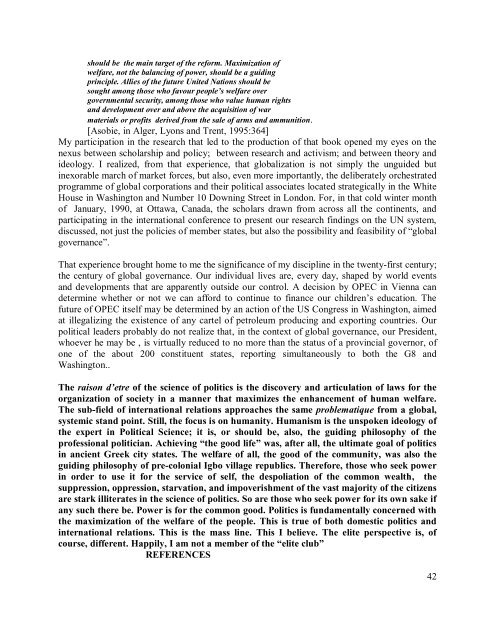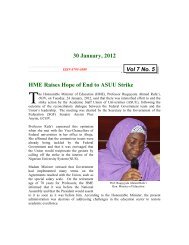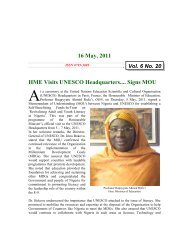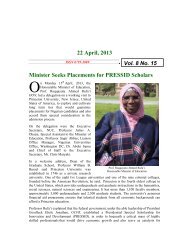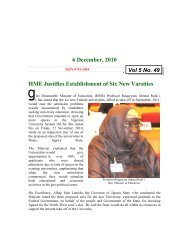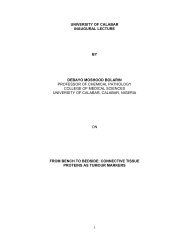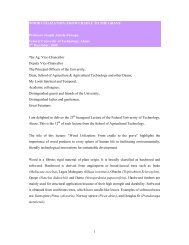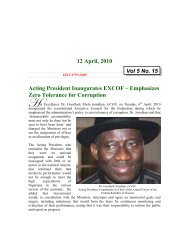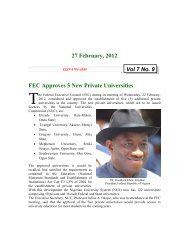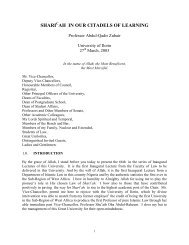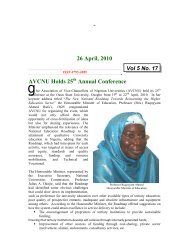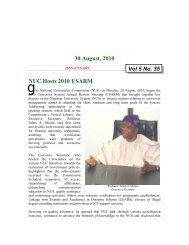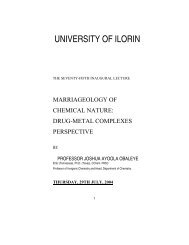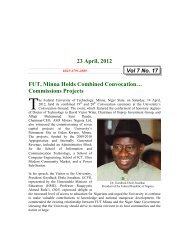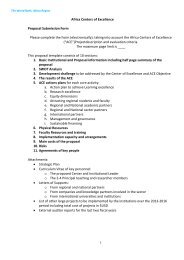From State And State Power To Man And Social - National ...
From State And State Power To Man And Social - National ...
From State And State Power To Man And Social - National ...
You also want an ePaper? Increase the reach of your titles
YUMPU automatically turns print PDFs into web optimized ePapers that Google loves.
should be the main target of the reform. Maximization ofwelfare, not the balancing of power, should be a guidingprinciple. Allies of the future United Nations should besought among those who favour people’s welfare overgovernmental security, among those who value human rightsand development over and above the acquisition of warmaterials or profits derived from the sale of arms and ammunition.[Asobie, in Alger, Lyons and Trent, 1995:364]My participation in the research that led to the production of that book opened my eyes on thenexus between scholarship and policy; between research and activism; and between theory andideology. I realized, from that experience, that globalization is not simply the unguided butinexorable march of market forces, but also, even more importantly, the deliberately orchestratedprogramme of global corporations and their political associates located strategically in the WhiteHouse in Washington and Number 10 Downing Street in London. For, in that cold winter monthof January, 1990, at Ottawa, Canada, the scholars drawn from across all the continents, andparticipating in the international conference to present our research findings on the UN system,discussed, not just the policies of member states, but also the possibility and feasibility of “globalgovernance”.That experience brought home to me the significance of my discipline in the twenty-first century;the century of global governance. Our individual lives are, every day, shaped by world eventsand developments that are apparently outside our control. A decision by OPEC in Vienna candetermine whether or not we can afford to continue to finance our children’s education. Thefuture of OPEC itself may be determined by an action of the US Congress in Washington, aimedat illegalizing the existence of any cartel of petroleum producing and exporting countries. Ourpolitical leaders probably do not realize that, in the context of global governance, our President,whoever he may be , is virtually reduced to no more than the status of a provincial governor, ofone of the about 200 constituent states, reporting simultaneously to both the G8 andWashington..The raison d’etre of the science of politics is the discovery and articulation of laws for theorganization of society in a manner that maximizes the enhancement of human welfare.The sub-field of international relations approaches the same problematique from a global,systemic stand point. Still, the focus is on humanity. Humanism is the unspoken ideology ofthe expert in Political Science; it is, or should be, also, the guiding philosophy of theprofessional politician. Achieving “the good life” was, after all, the ultimate goal of politicsin ancient Greek city states. The welfare of all, the good of the community, was also theguiding philosophy of pre-colonial Igbo village republics. Therefore, those who seek powerin order to use it for the service of self, the despoliation of the common wealth, thesuppression, oppression, starvation, and impoverishment of the vast majority of the citizensare stark illiterates in the science of politics. So are those who seek power for its own sake ifany such there be. <strong>Power</strong> is for the common good. Politics is fundamentally concerned withthe maximization of the welfare of the people. This is true of both domestic politics andinternational relations. This is the mass line. This I believe. The elite perspective is, ofcourse, different. Happily, I am not a member of the “elite club”REFERENCES42


